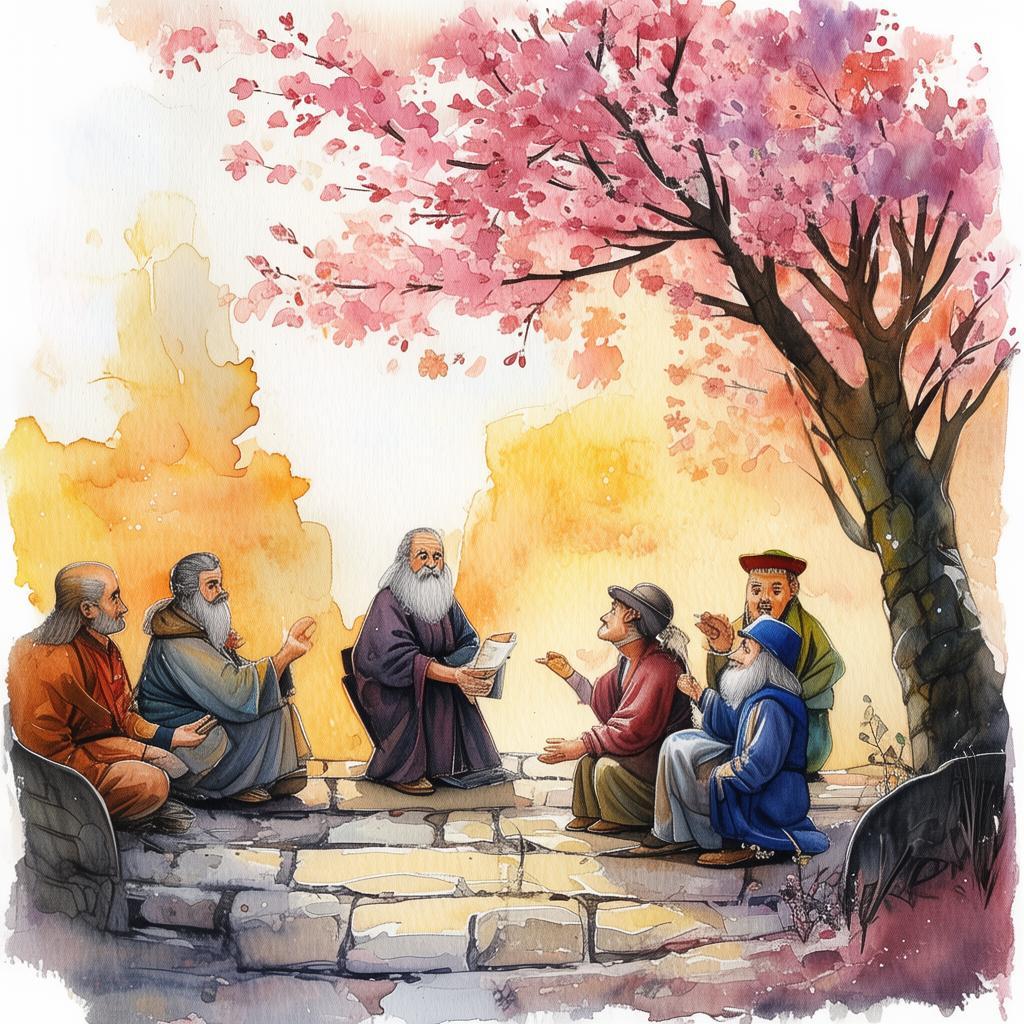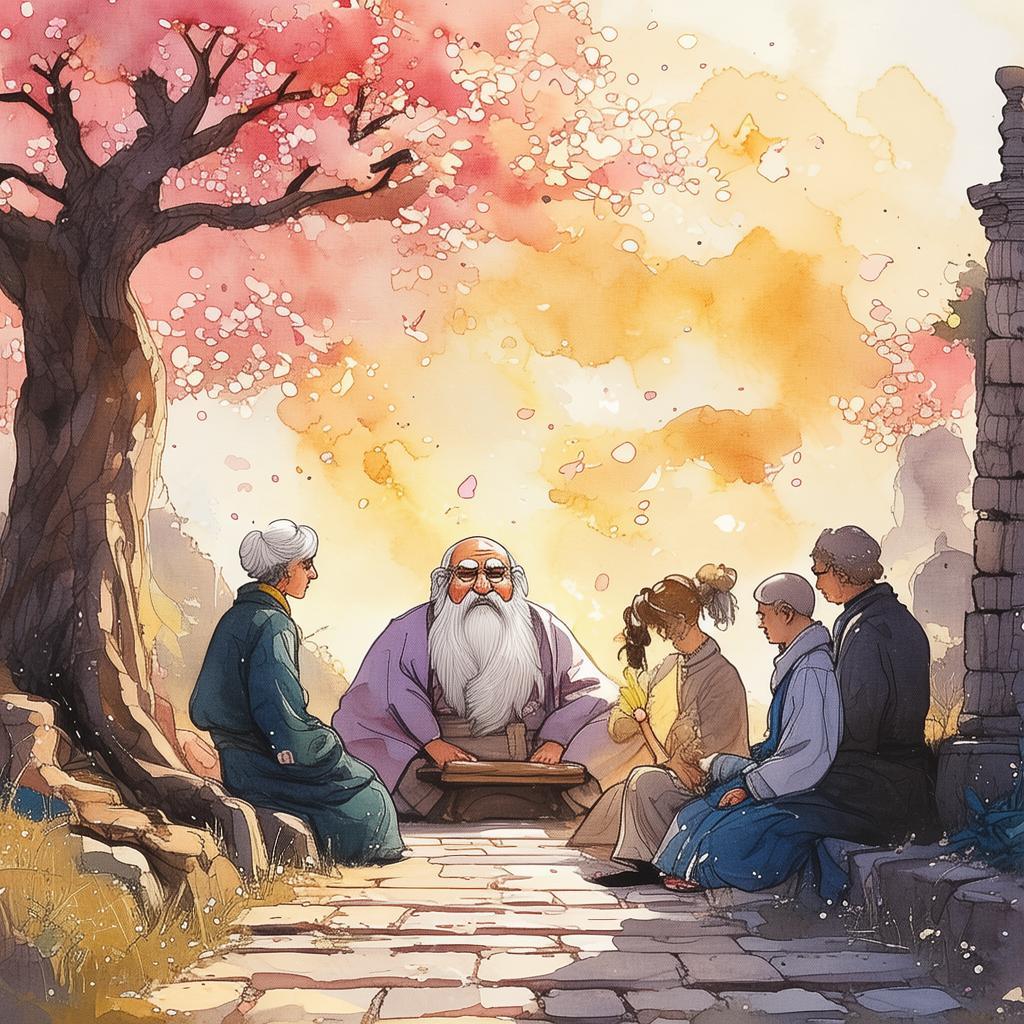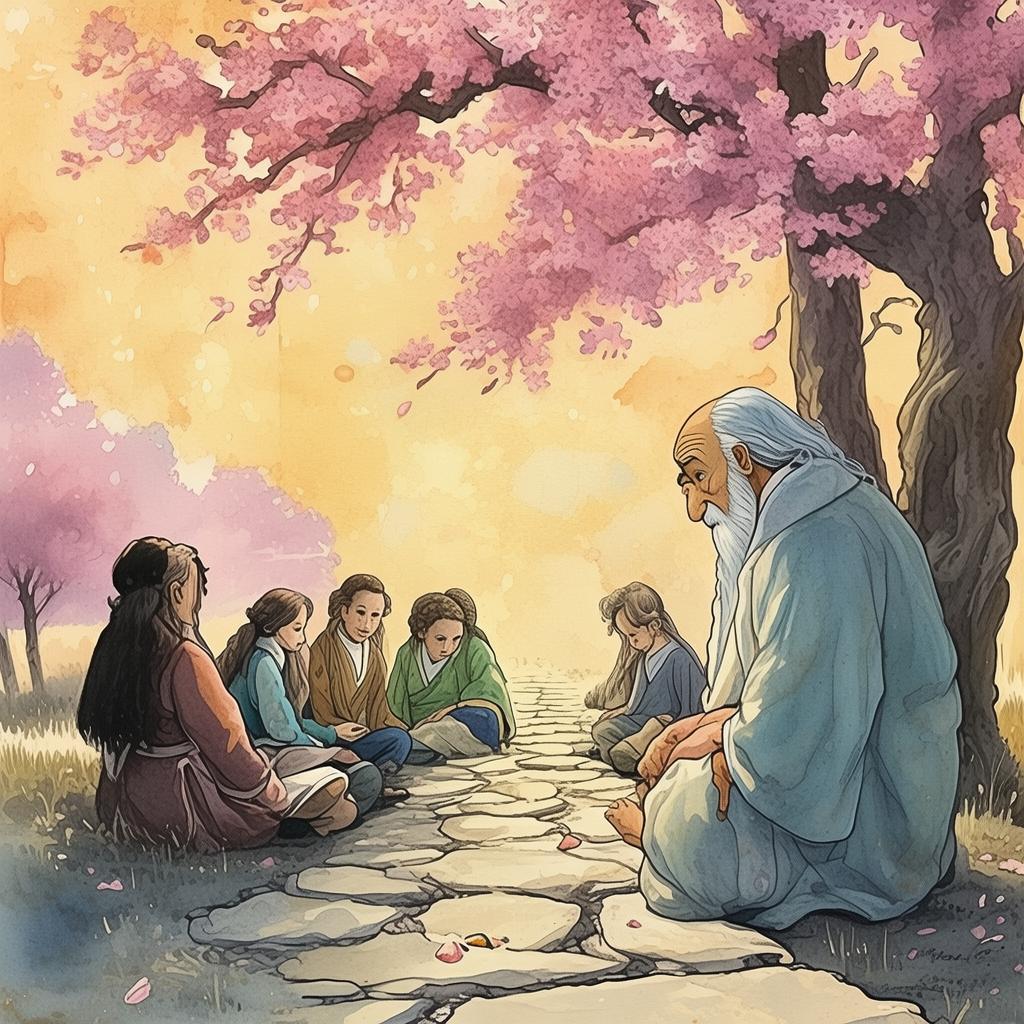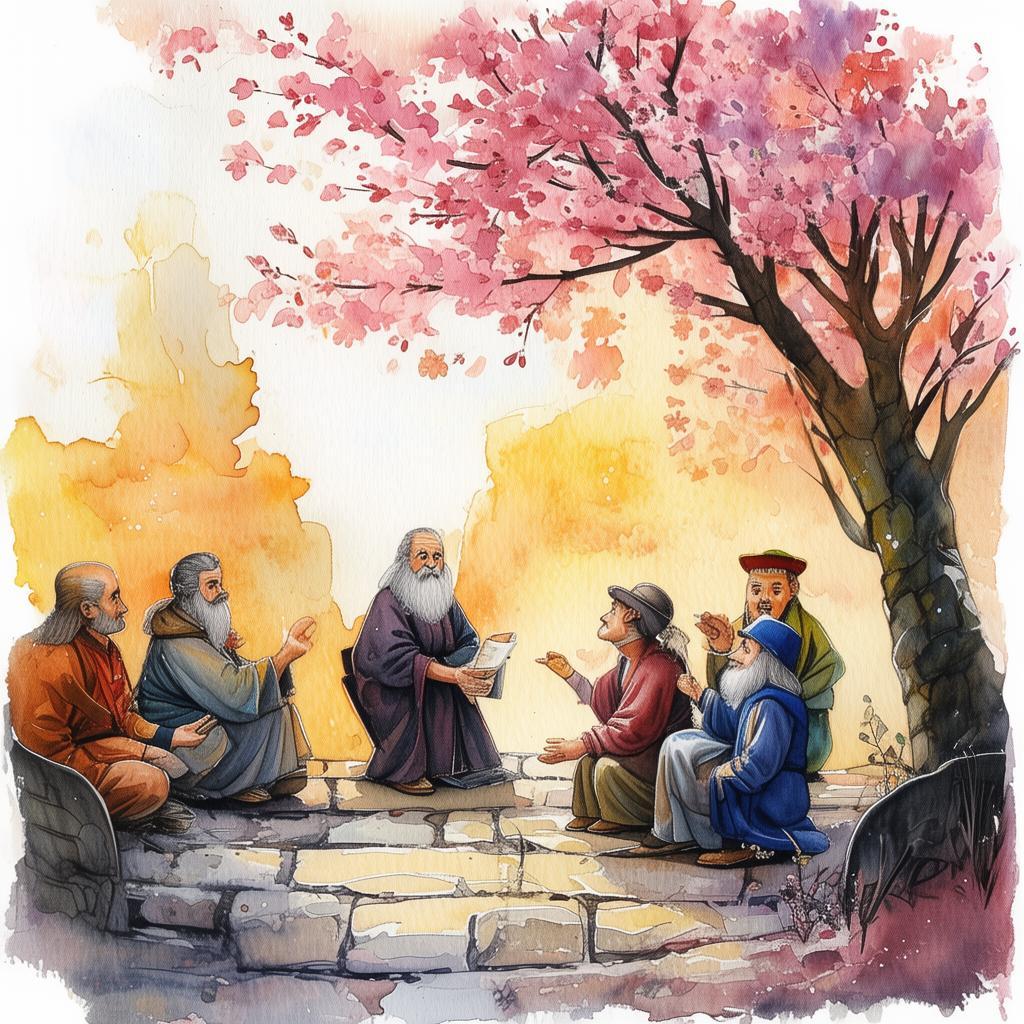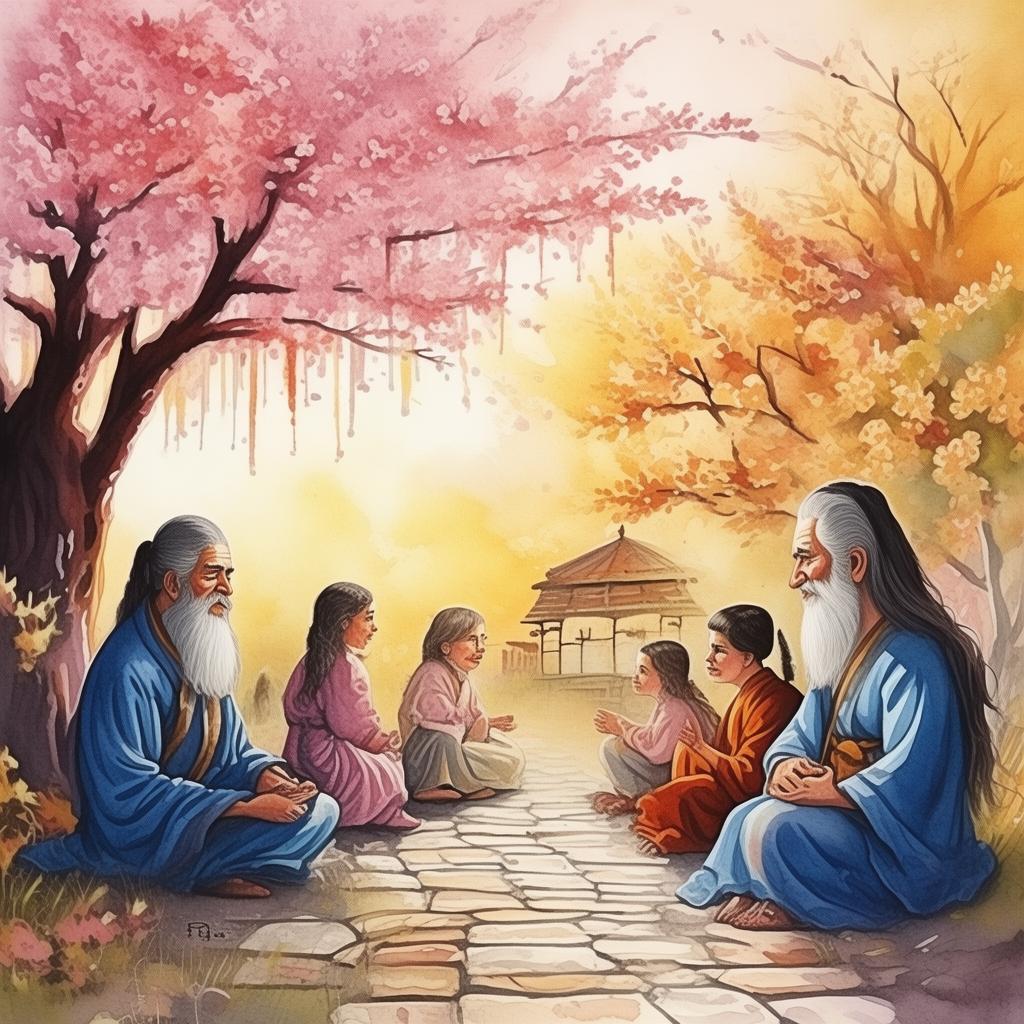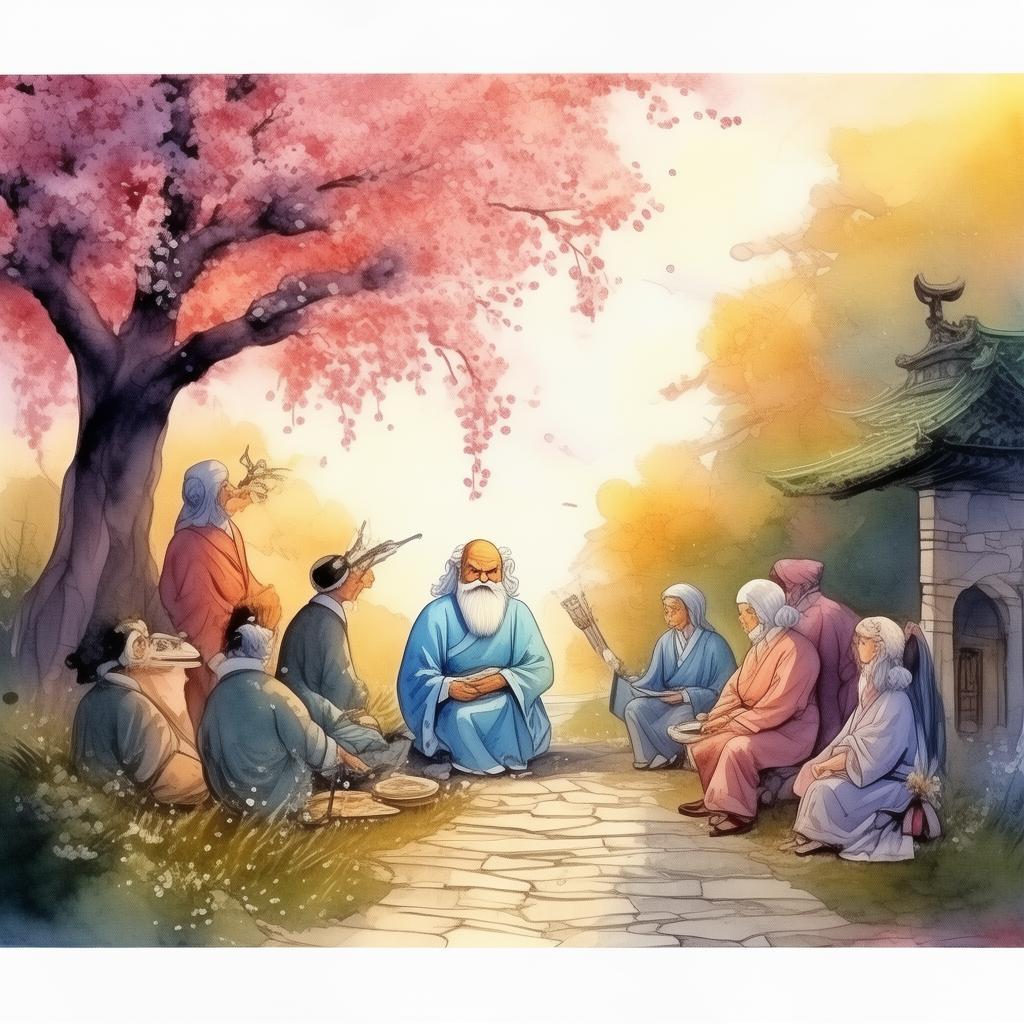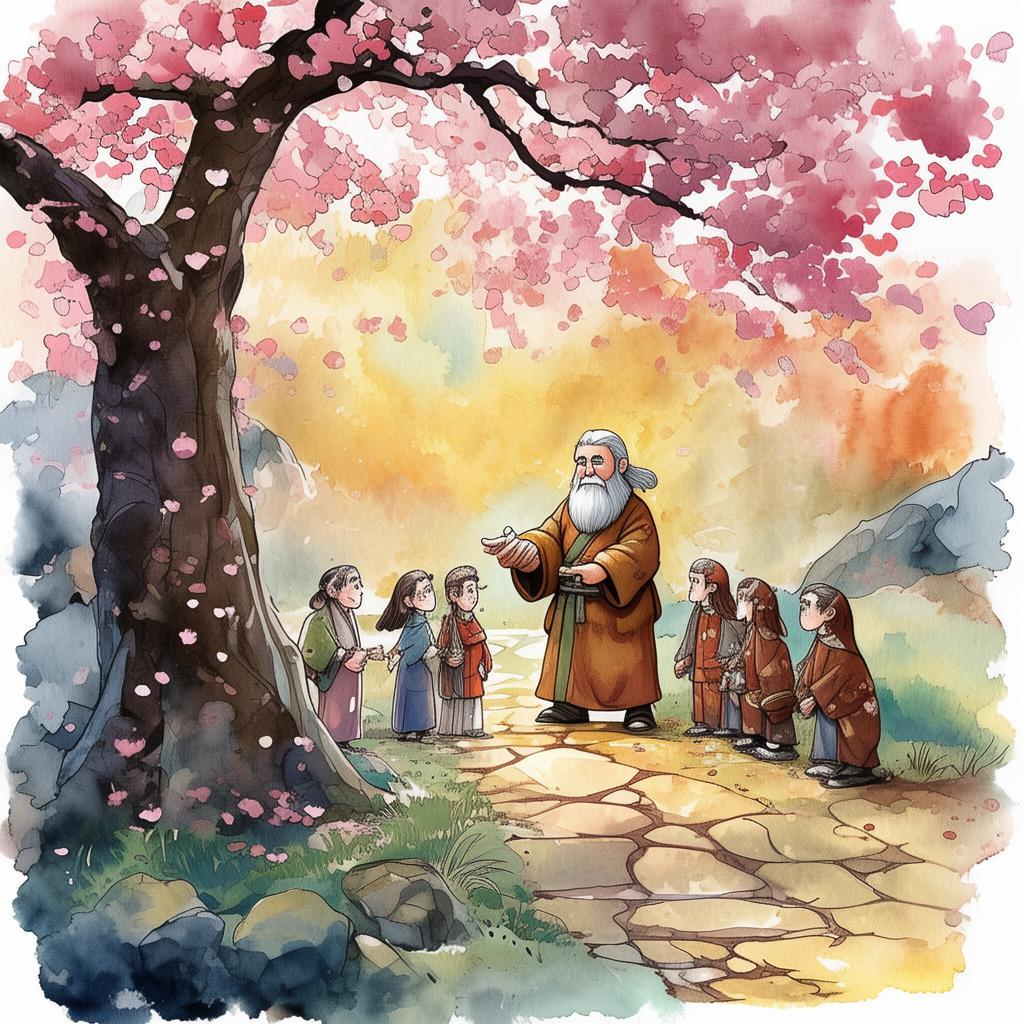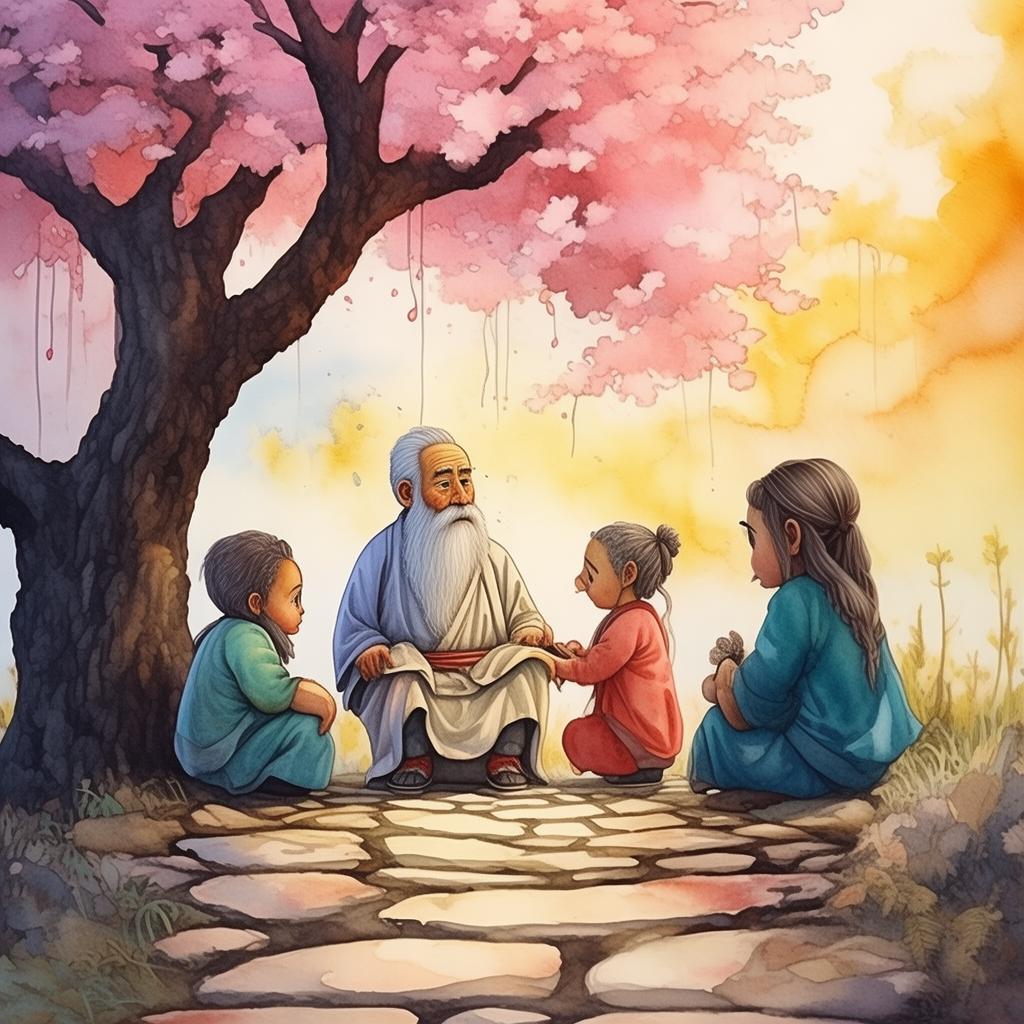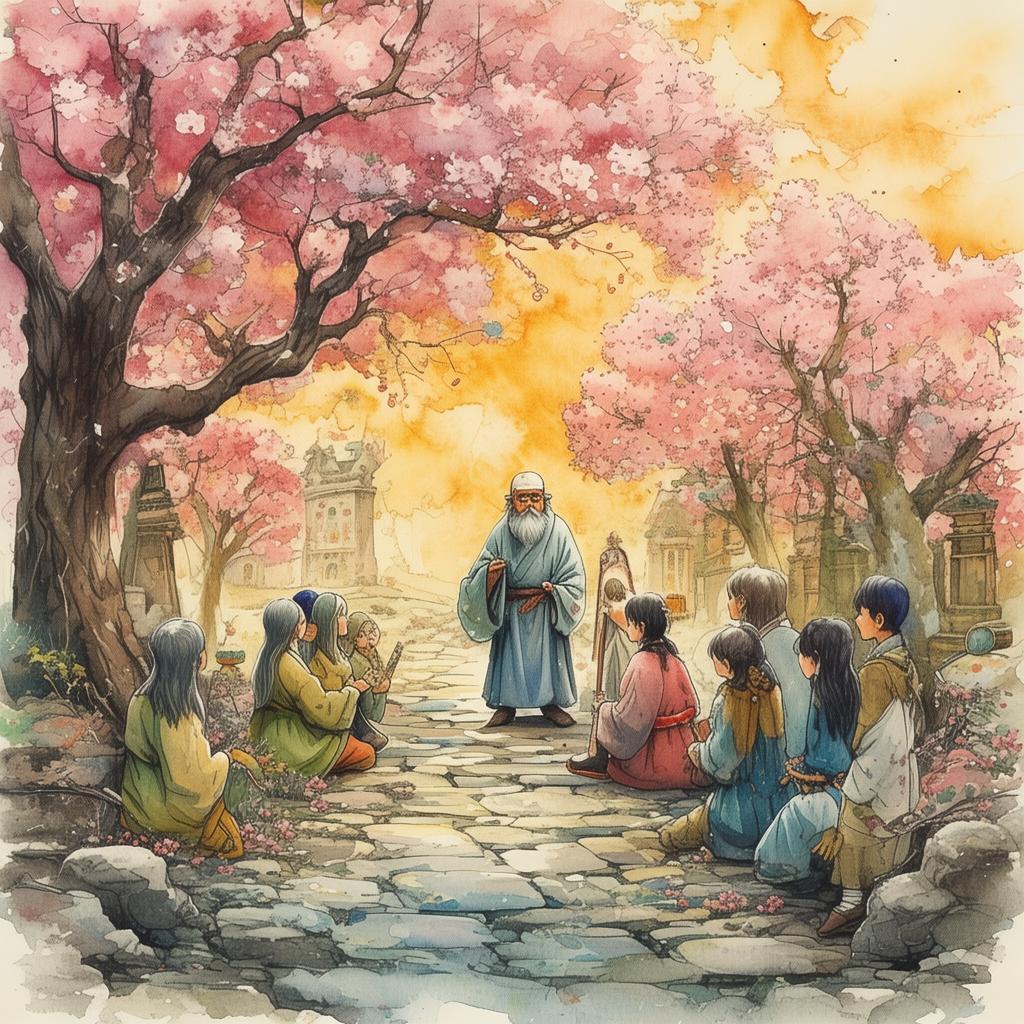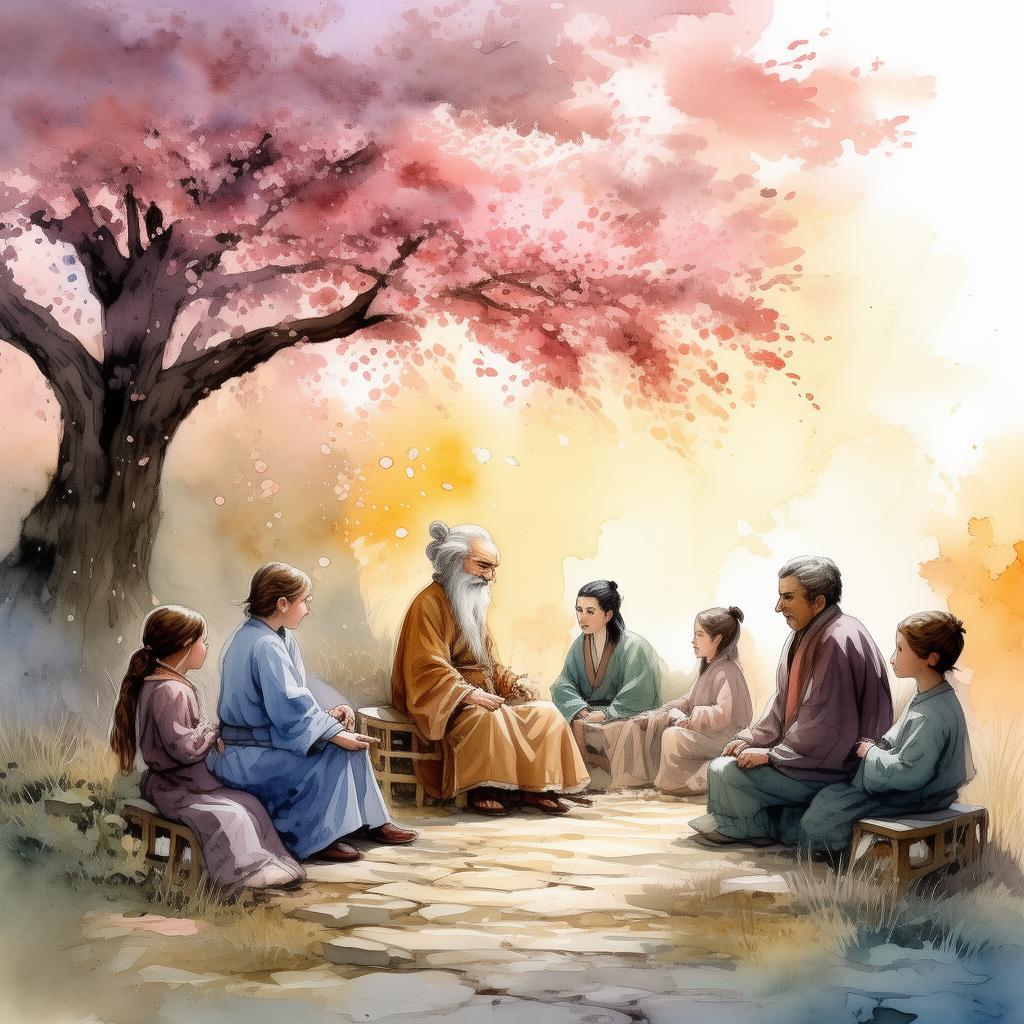The Kunshan Parable: The Philosopher's Enlightenment
In the tranquil town of Kunshan, nestled between the Yangtze River and the ancient mountains, there lived a renowned philosopher named Chang. Chang was celebrated for his profound knowledge and the wisdom he imparted to the townsfolk. His teachings were profound, but Chang was often driven by the desire for enlightenment that went beyond mere intellectual understanding.
One day, Chang set out to visit a nearby village to deepen his knowledge and understanding of the world. As he walked along the riverbank, he came upon an old fisherman casting his net. The fisherman, with a weathered face and eyes that sparkled with a lifetime of wisdom, paid no attention to the philosopher as he continued his monotonous task.
Chang, feeling an inexplicable urge to speak to the fisherman, approached him and said, “Good man, I have heard of your skill in catching fish. Tell me, what is the secret to your success?”
The fisherman, without looking up, replied, “Success? The secret is simple. I know when to cast my net and when to let it go. I understand the rhythm of the river and the patterns of the fish. The water teaches me everything.”
Chang was puzzled. “But is that all? Do you not seek wisdom beyond the mundane tasks of fishing?”
The fisherman paused, his eyes reflecting the serene river, “Why do you seek wisdom? Wisdom is not something you find; it is something you live. It is in the simple things, the ordinary moments. It is in the act of being present, of understanding the world around you.”
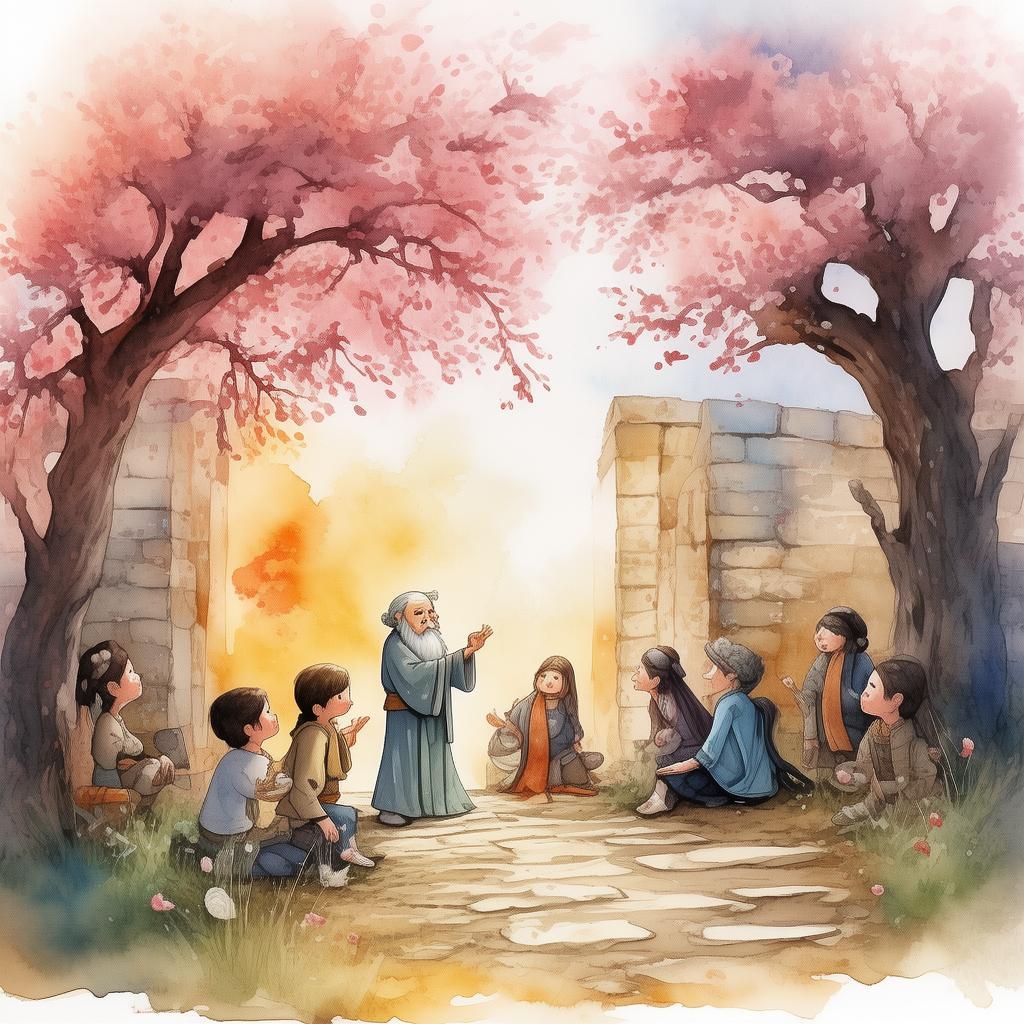
Intrigued, Chang asked, “Can you give me an example?”
The fisherman, now looking directly at Chang, said, “Sure. When you walk along the river, you see the fish leap from the water, do you not?”
“Yes,” Chang answered, “I do.”
“Then, you understand that even the most mundane acts can be filled with life and wonder,” the fisherman continued. “And that is where true wisdom lies. In the ability to find meaning in the simplest of things.”
Chang pondered the fisherman’s words. He realized that the fisherman’s life was a parable, a living, breathing example of the very wisdom he sought. The fisherman, with his simple yet profound understanding of life, was a master of enlightenment.
That night, Chang returned to his quarters in the town. He sat by the window, gazing at the stars and the moon, and reflected on the fisherman’s words. He understood that the greatest wisdom often lay in the most ordinary things. It was not in the grand theories or complex ideas, but in the everyday experiences, the simple acts of living.
The next morning, Chang gathered the townsfolk to share his newfound wisdom. “My friends,” he began, “the greatest enlightenment does not come from grand adventures or profound intellectual pursuits. It comes from understanding the simple, from finding beauty in the ordinary.”
The townsfolk listened intently, their eyes wide with curiosity and hope. Chang continued, “The fisherman taught me that wisdom is not something we seek; it is something we live. It is in the way we interact with the world, in the way we embrace the ordinary.”
From that day forward, the townsfolk began to see the world through different eyes. They found wisdom in the laughter of children, in the gentle touch of a friend, and in the quiet moments of reflection. They learned to appreciate the beauty in the simple, to find meaning in the ordinary.
And so, Chang’s encounter with the fisherman became a parable, a story that traveled far and wide, a testament to the power of enlightenment found in the simplest of things. It was a story that would be told for generations, a story that would remind people to seek wisdom in the everyday, in the ordinary, and in the living.
Through the encounter with the fisherman, Chang had found the enlightenment he sought. It was not in the pursuit of grand ideas, but in the appreciation of the simple, the ordinary, and the everyday. It was a reminder that the greatest wisdom often lies in the most ordinary things, a truth that would forever change the lives of those who heard it.
✨ Original Statement ✨
All articles published on this website (including but not limited to text, images, videos, and other content) are original or authorized for reposting and are protected by relevant laws. Without the explicit written permission of this website, no individual or organization may copy, modify, repost, or use the content for commercial purposes.
If you need to quote or cooperate, please contact this site for authorization. We reserve the right to pursue legal responsibility for any unauthorized use.
Hereby declared.
